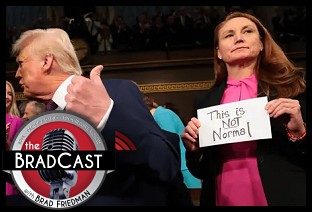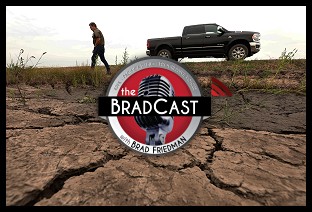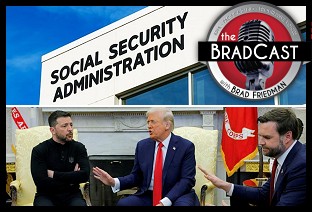Guest blogged by Steven Rosenfeld of AlterNet
 Republican Party efforts to stop thousands of voters from casting meaningful ballots in 2008 because their registration information does not match government databases with high error rates was set back by legal rulings in Wisconsin, Ohio and Nevada on Thursday.
Republican Party efforts to stop thousands of voters from casting meaningful ballots in 2008 because their registration information does not match government databases with high error rates was set back by legal rulings in Wisconsin, Ohio and Nevada on Thursday.
In Wisconsin, a judge threw out a lawsuit by the state Attorney General, who also is the McCain campaign co-chair. In Ohio and Nevada, each state's top election official issued an order or opinion rejecting such 'no-match' voter challenges.
While Republican officials criticized these moves, it appears that momentum is building against GOP efforts to use ambiguities in voter registration laws to challenge large numbers of 2008 voters...
The federal Help America Vote Act of 2002 instructs states to use Social Security and driver's license databases to verify registrations, but leaves it up to states to decide how to specifically do that.
That ambiguity has been the backdrop of the GOP's assertions that states must segregate problem voter registrations, treating them as a separate class of ballots. But, so far, most state and federal courts have rejected the Republican's legal arguments...
Wisconsin
In Wisconsin, Dane County Circuit Judge Maryann Sumi ruled that Attorney General J.B. Van Hollen, a Republican and McCain-Palin campaign co-chair, did not have the legal authority to bring a suit demanding the state's election board re-certify thousands of registrations before Election Day if they did not match other government databases.
Sumi said no violation of state or federal law was poised to occur. Instead, she said the proper way for the no-match issue to be handled was to go through established state law - where the matter would have been taken up by the very state board that Van Hollen sued, Wisconsin's Government Accountability Board.
Van Hollen issued a statement saying he would appeal.
"We can not lose sight of the goal of this lawsuit," he said. "Wisconsin needs an accurate statewide voter list. Wisconsin needs to comply with state and federal laws designed to protect the right to vote. Looking the other way is not an option."
Ohio
In Ohio, Secretary of State Jennifer Brunner, a Democrat and former judge, Thursday issued a directive telling local election officials that they cannot stop a person from voting on Nov. 4 if their individual voter registration did not match these two government databases.
Brunner's directive, which has the force of law, comes after Ohio Republicans lost on this issue in a case that went to the U.S. Supreme Court, and also withdrew a similar lawsuit at the state Supreme Court.
Brunner instructed Ohio's 88 county election boards to reject any voter challenges based on database mismatches. In September, she issued another directive narrowing the circumstances under which a political party could challenge voters at their polling places. Brunner has said she wants to see as many voters as possible vote without incident on Election Day.
Brunner's order explained why the no-match standard could disenfranchise legal voters.
The Ohio secretary said there was no requirement in Ohio law that forced election officials to give voters with "no-match" problems a provisional ballot, which would have be verified before counting. The Ohio Republican Party's suit before the state Supreme Court sought that remedy. "A copy of this directive must be included in the poll worker packets distributed to all poll workers," her order said.
The Ohio Republican Party responded to Brunner's directive by belittling her election administration efforts.
"This is the same mismatch information Brunner has so far failed to provide to county election administrators," said Ohio Republican Party Deputy Chairman Kevin DeWine, in a press release. "At this point she's telling elections officials what to do with information she hasn't even provided them. Until she releases the 200,000 questionable registrations on file in her office, this directive is worthless."
Nevada
In Nevada, Secretary of State Ross Miller has rejected an assertion by the state's Republican Party Chair Sue Lowden that voters should not be able to correct voter registration information at polling places. She argued in a letter to Miller that the close of voter registration before Election Day precluded that option, saying affected voters should be given provisional ballots.
Miller's response rejected Lowden's contention, saying "Nevada law provides the manner in which an in-person and mail-in applicant may update or correct the voter information, and may do so without losing his right to vote."
While the developments in Wisconsin, Ohio and Nevada may bode well for accommodating voters in a high-turnout election, the fights concerning whose votes will count on Election Day are far from over.
Other States
On the database matching issue, the Pennsylvania Republican Party has also filed a suit seeking to have 'no-match' registrations treated differently. And in New Mexico, another swing state, the American Civil Liberties Union has asked the state Attorney General to investigate concerns that the Bernalillo County Clerk's Office may have given private voter registration information to the Republican Party.
That information could "make its way into the hands of people who want to influence their vote or intimidate them into not voting at all," the ACLU of New Mexico said in its press release.
===
Steve Rosenfeld is a senior fellow at Alternet.org and author of several books, including "Count My Vote: A Citizen's Guide to Voting" and "What Happened in Ohio: A Documentary Record of Theft and Fraud in the 2004 Election".


 Vets Push Back at Trump, Musk Plan to Slash Health Care, 80K V.A. Jobs: 'BradCast' 3/27/25
Vets Push Back at Trump, Musk Plan to Slash Health Care, 80K V.A. Jobs: 'BradCast' 3/27/25 'Green News Report' 3/27/25
'Green News Report' 3/27/25
 Signal Scandal Worsens for Trump, GOP; Big Election Victories for Dems in PA: 'BradCast' 3/26/25
Signal Scandal Worsens for Trump, GOP; Big Election Victories for Dems in PA: 'BradCast' 3/26/25 'Emptywheel' on Why Trump NatSec Team Should 'Resign in Disgrace' After Signal Chat Debacle: 'BradCast' 3/25/25
'Emptywheel' on Why Trump NatSec Team Should 'Resign in Disgrace' After Signal Chat Debacle: 'BradCast' 3/25/25 'Green News Report' 3/25/25
'Green News Report' 3/25/25 Postal Workers Union Prez: USPS 'Belongs to the People, Not the Billionaires':
Postal Workers Union Prez: USPS 'Belongs to the People, Not the Billionaires': Sunday 'Suddenly Conceivable' Toons
Sunday 'Suddenly Conceivable' Toons We're ALL Voice of America Now: 'BradCast' 3/20/25
We're ALL Voice of America Now: 'BradCast' 3/20/25 'Green News Report' 3/20/25
'Green News Report' 3/20/25 What Trump's 'Timber Production Expansion' Means (and Costs): 'BradCast' 3/19/25
What Trump's 'Timber Production Expansion' Means (and Costs): 'BradCast' 3/19/25 Courts Largely Holding Against Trump, Musk Lawlessness: 'BradCast' 3/18/25
Courts Largely Holding Against Trump, Musk Lawlessness: 'BradCast' 3/18/25 'Green News Report' 3/18/25
'Green News Report' 3/18/25 Chief VOA Reporter on Outlet Falling Silent First Time Since 1942: 'BradCast' 3/17/25
Chief VOA Reporter on Outlet Falling Silent First Time Since 1942: 'BradCast' 3/17/25 Sunday 'The Usual' Toons
Sunday 'The Usual' Toons 'Green News Report' 3/13/25
'Green News Report' 3/13/25 Trump EPA Unveils Plans to Endanger, Sicken Americans: 'BradCast' 3/13/25
Trump EPA Unveils Plans to Endanger, Sicken Americans: 'BradCast' 3/13/25 Trump Nixed Enforce-ment Against 100 Corp. Lawbreakers: 'BradCast' 3/12/25
Trump Nixed Enforce-ment Against 100 Corp. Lawbreakers: 'BradCast' 3/12/25 Bad Day for 'Strongmen': 'BradCast' 3/11
Bad Day for 'Strongmen': 'BradCast' 3/11 WI Election Could Flip Supreme Court Control, Musk Jumps In: 'BradCast' 3/10
WI Election Could Flip Supreme Court Control, Musk Jumps In: 'BradCast' 3/10 'What Else Could a Russian Asset Do That Trump Hasn't?': 'BradCast' 3/6/25
'What Else Could a Russian Asset Do That Trump Hasn't?': 'BradCast' 3/6/25 The Longest, Dullest, Most Lie-Filled 'SOTU' Ever: 'BradCast' 3/5/25
The Longest, Dullest, Most Lie-Filled 'SOTU' Ever: 'BradCast' 3/5/25 Trump Bad for Biz... and Farmers... and Nat'l Parks... and...: 'BradCast' 3/4/25
Trump Bad for Biz... and Farmers... and Nat'l Parks... and...: 'BradCast' 3/4/25 Trump Targeting 50% Cuts, Office Closures at Social Security: 'BradCast' 3/3/25
Trump Targeting 50% Cuts, Office Closures at Social Security: 'BradCast' 3/3/25
 VA GOP VOTER REG FRAUDSTER OFF HOOK
VA GOP VOTER REG FRAUDSTER OFF HOOK Criminal GOP Voter Registration Fraud Probe Expanding in VA
Criminal GOP Voter Registration Fraud Probe Expanding in VA DOJ PROBE SOUGHT AFTER VA ARREST
DOJ PROBE SOUGHT AFTER VA ARREST Arrest in VA: GOP Voter Reg Scandal Widens
Arrest in VA: GOP Voter Reg Scandal Widens ALL TOGETHER: ROVE, SPROUL, KOCHS, RNC
ALL TOGETHER: ROVE, SPROUL, KOCHS, RNC LATimes: RNC's 'Fired' Sproul Working for Repubs in 'as Many as 30 States'
LATimes: RNC's 'Fired' Sproul Working for Repubs in 'as Many as 30 States' 'Fired' Sproul Group 'Cloned', Still Working for Republicans in At Least 10 States
'Fired' Sproul Group 'Cloned', Still Working for Republicans in At Least 10 States FINALLY: FOX ON GOP REG FRAUD SCANDAL
FINALLY: FOX ON GOP REG FRAUD SCANDAL COLORADO FOLLOWS FLORIDA WITH GOP CRIMINAL INVESTIGATION
COLORADO FOLLOWS FLORIDA WITH GOP CRIMINAL INVESTIGATION CRIMINAL PROBE LAUNCHED INTO GOP VOTER REGISTRATION FRAUD SCANDAL IN FL
CRIMINAL PROBE LAUNCHED INTO GOP VOTER REGISTRATION FRAUD SCANDAL IN FL Brad Breaks PA Photo ID & GOP Registration Fraud Scandal News on Hartmann TV
Brad Breaks PA Photo ID & GOP Registration Fraud Scandal News on Hartmann TV  CAUGHT ON TAPE: COORDINATED NATIONWIDE GOP VOTER REG SCAM
CAUGHT ON TAPE: COORDINATED NATIONWIDE GOP VOTER REG SCAM CRIMINAL ELECTION FRAUD COMPLAINT FILED AGAINST GOP 'FRAUD' FIRM
CRIMINAL ELECTION FRAUD COMPLAINT FILED AGAINST GOP 'FRAUD' FIRM RICK SCOTT GETS ROLLED IN GOP REGISTRATION FRAUD SCANDAL
RICK SCOTT GETS ROLLED IN GOP REGISTRATION FRAUD SCANDAL VIDEO: Brad Breaks GOP Reg Fraud Scandal on Hartmann TV
VIDEO: Brad Breaks GOP Reg Fraud Scandal on Hartmann TV RNC FIRES NATIONAL VOTER REGISTRATION FIRM FOR FRAUD
RNC FIRES NATIONAL VOTER REGISTRATION FIRM FOR FRAUD EXCLUSIVE: Intvw w/ FL Official Who First Discovered GOP Reg Fraud
EXCLUSIVE: Intvw w/ FL Official Who First Discovered GOP Reg Fraud GOP REGISTRATION FRAUD FOUND IN FL
GOP REGISTRATION FRAUD FOUND IN FL


































